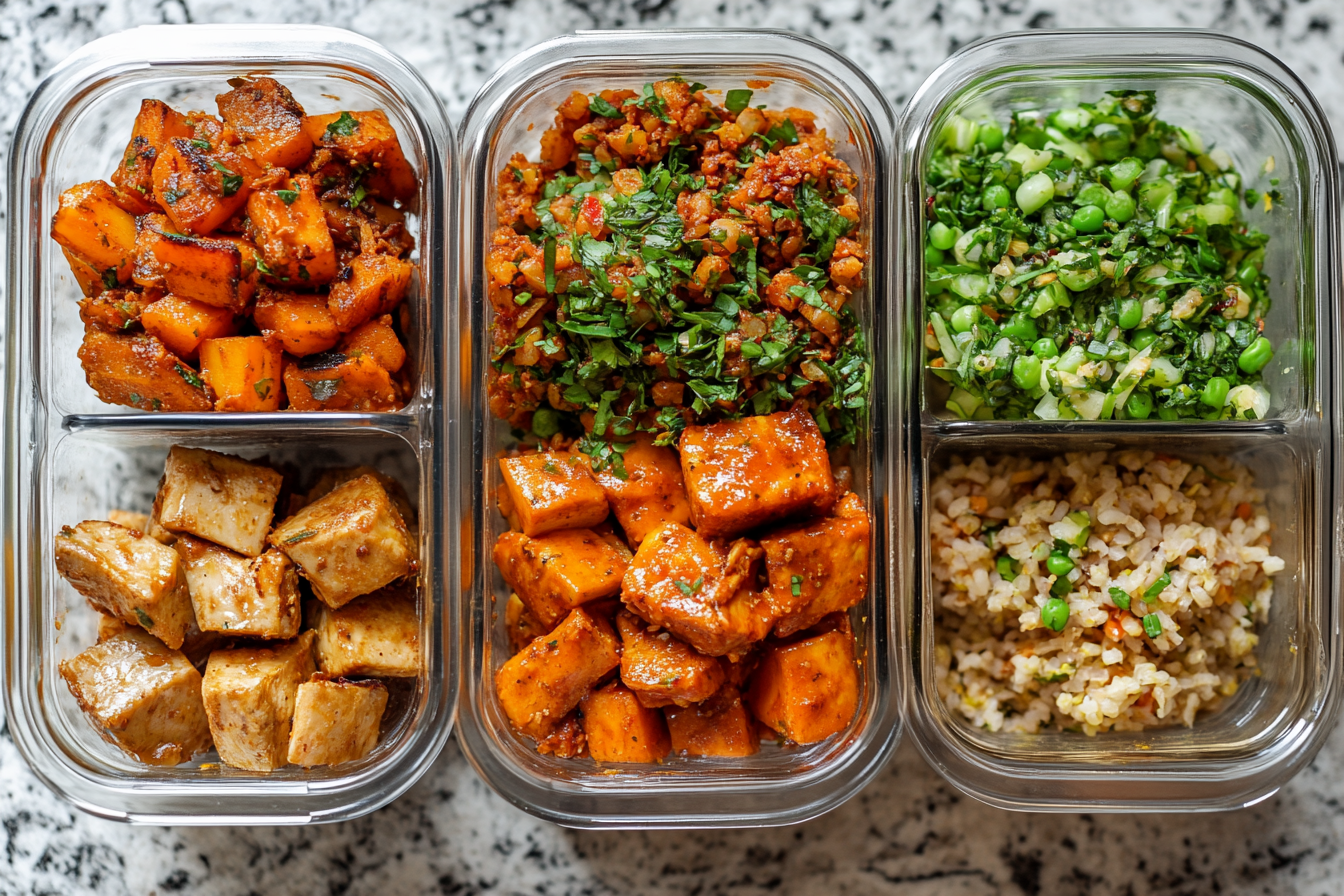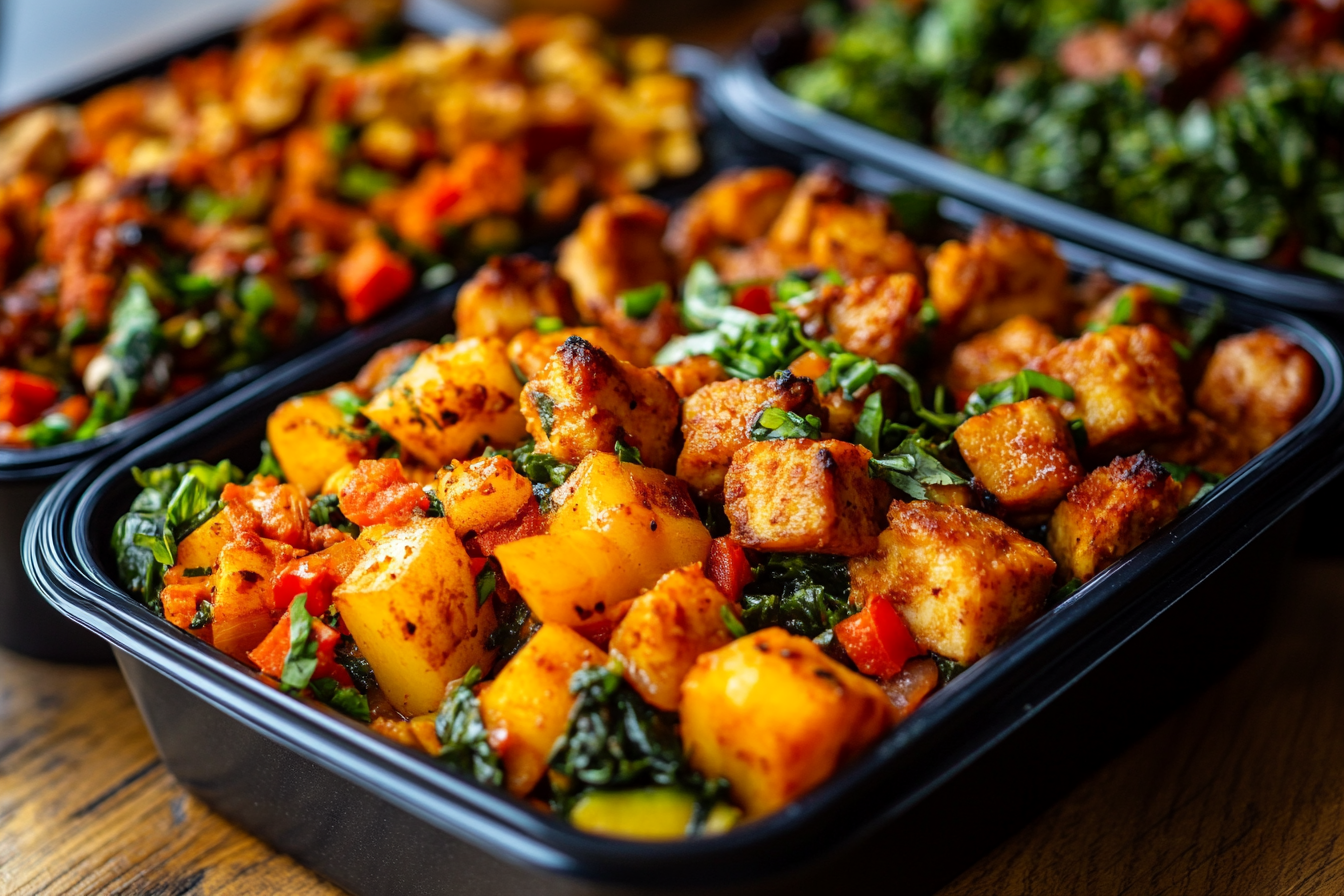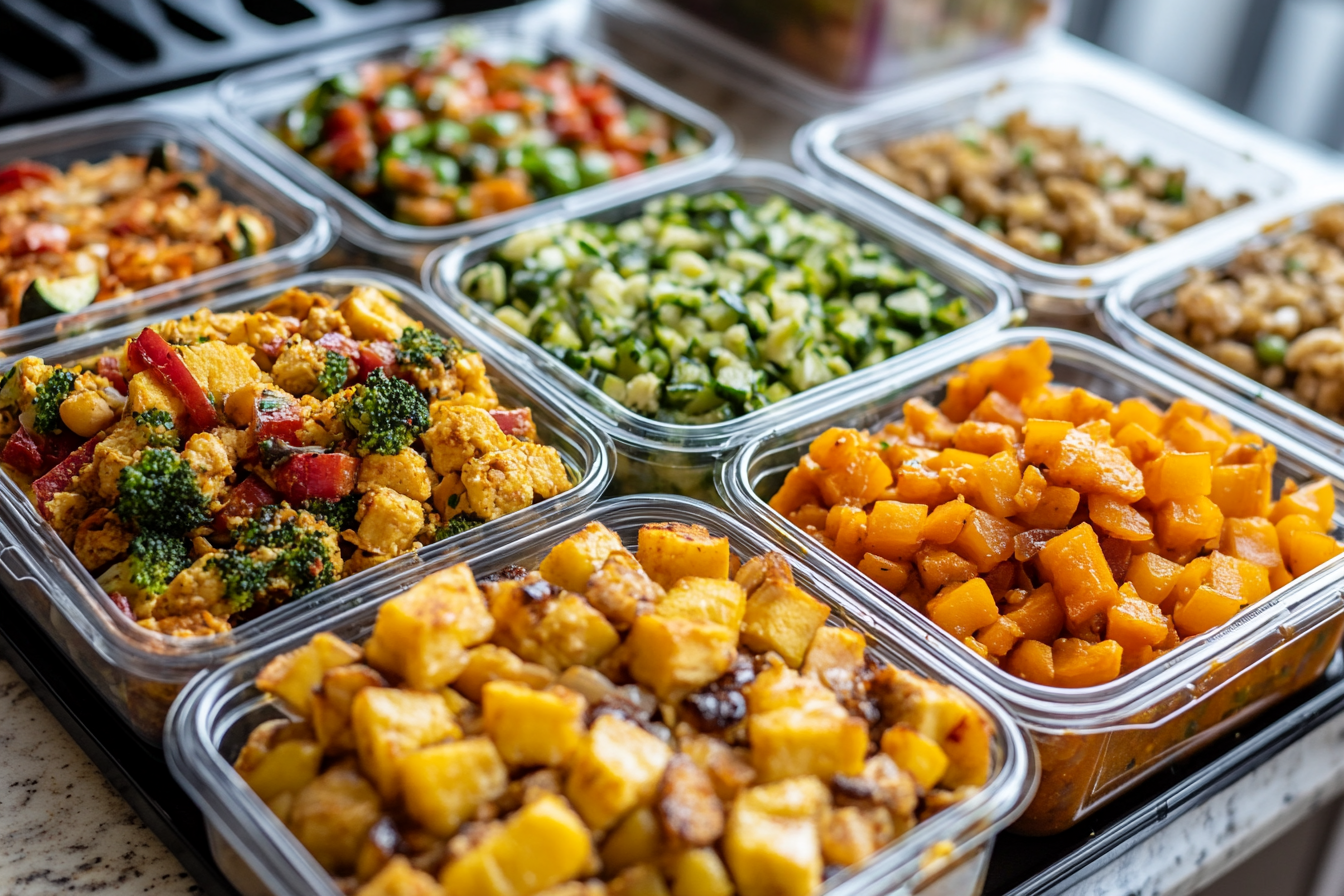Are vegan meals healthier? This question is more relevant today than ever before. Veganism is more than a trend, it’s a lifestyle many people now embrace. The vegan diet cuts out all animal products, including meat, dairy, eggs, and even honey. People choose veganism for ethical reasons, environmental concerns, and the belief that vegan meals offer better health. But does this belief hold up under scrutiny? This article explores the nutritional benefits, possible risks, and practical aspects of a vegan diet, aiming to answer the question: Are vegan meals truly healthier than those with animal products?
Understanding Vegan Diets: Are Vegan Meals Healthier?
When asking, are vegan meals healthier, it’s important to understand what a vegan diet entails. A vegan diet focuses only on plant-based foods, including vegetables, grains, nuts, seeds, beans, and fruits. This diet avoids all animal products, and the growing popularity of veganism comes from its supposed health benefits. However, understanding the different types of vegan diets is important before making any health claims.
Types of Vegan Diets: Do They Make Vegan Meals Healthier?
- Whole food vegan diet: Focuses on eating whole, unprocessed plant foods, like fresh fruits, vegetables, nuts, and grains. The goal is to eat foods in their natural state, which may improve nutritional intake.
- Raw vegan diet: Centers around eating raw fruits, vegetables, nuts, and seeds. Followers believe cooking reduces the nutritional value, so they eat foods raw to keep the most nutrients.
- Junk-food vegan diet: Relies on processed vegan foods, like plant-based burgers, chips, and sweets. Although vegan, this diet may not be as healthy because of the high level of processed ingredients and lower nutritional value.
To truly answer the question are vegan meals healthier, we must consider each of these diet types and their impact on health.
Nutritional Benefits of Vegan Meals: How Vegan Diets Can Be Healthier
To determine are vegan meals healthier, we must look at the nutritional content of these meals. Vegan meals are rich in fruits, vegetables, whole grains, nuts, and seeds. These foods are full of key nutrients that support overall health. Switching from animal-based products to plant-based foods can bring big health benefits, especially in reducing the risk of long-term diseases.
Key Nutritional Benefits: What Makes Vegan Meals Healthier?
- High Fiber Intake: Vegan diets are high in dietary fiber, which is key for digestive health. Fiber helps keep a healthy weight, lowers cholesterol, and prevents constipation. Beans, lentils, and whole grains are excellent sources of fiber, which are often missing in diets heavy in meat and dairy.
- Plenty of Vitamins and Antioxidants: A diet rich in fruits and vegetables provides essential vitamins A, C, and E, which are important for immune function, skin health, and vision. Also, antioxidants in plant-based foods protect the body from damage linked to aging and long-term diseases.
- Low in Saturated Fats and Cholesterol: Vegan diets naturally contain less saturated fats and cholesterol, which are often found in animal products. Lower levels of these substances can reduce the risk of heart disease, high blood pressure, and stroke. A Harvard Health article highlights that plant-based diets have been linked to lower rates of heart disease, type 2 diabetes, and certain cancers compared to diets high in animal products.
- Better Blood Sugar Levels: Some studies suggest that vegan diets can help manage blood sugar levels, making them good for people with type 2 diabetes or those at risk of getting it. The high fiber content slows down sugar absorption into the bloodstream.
By examining these benefits, we can start to see why many believe the answer to are vegan meals healthier might be yes.
Potential Health Risks of Vegan Diets: Could Vegan Meals Be Less Healthy?
However, to fully answer the question are vegan meals healthier, we must also consider potential risks. While the benefits of a vegan diet are clear, it’s important to think about the possible risks, especially if the diet isn’t well-planned. Without careful planning, a vegan diet can lead to nutrient shortages, especially in nutrients normally found in animal products.
Possible Nutrient Shortages: Are There Health Risks in Vegan Meals?
- Vitamin B12 Shortage: Vitamin B12 plays a key role in nerve function and the production of DNA and red blood cells. It’s naturally found in animal products, so vegans must get it through fortified foods or supplements. Without enough Vitamin B12, you might experience anemia, fatigue, and nerve problems.
- Iron Shortage: While plant-based foods like spinach and lentils contain iron, the type of iron found in plants (non-heme iron) is harder for the body to absorb than the iron found in animal products (heme iron). To help iron absorption, vegans should eat iron-rich foods with vitamin C-rich foods, like citrus fruits or tomatoes.
- Omega-3 Fatty Acids: Omega-3 fatty acids, important for heart and brain health, are mostly found in fish and seafood. Vegans need to eat plant-based sources like flaxseeds, chia seeds, and walnuts or consider algae-based supplements.
- Protein Intake: Protein is important for muscle repair, immune function, and hormone production. While vegan diets can provide enough protein, it takes careful planning. Plant-based proteins like tofu, tempeh, lentils, and quinoa should be staples in a vegan diet to ensure adequate protein intake.
Understanding these risks is essential when asking are vegan meals healthier than other dietary options.
Comparison with Non-Vegan Diets: Are Vegan Meals Truly Healthier?
A balanced approach is key when determining are vegan meals healthier than non-vegan diets. When comparing vegan diets to non-vegan diets, the differences in health outcomes become clear. Plant-based diets are linked to a lower risk of several long-term diseases. However, it’s important to weigh these benefits against the possible risks that vegan diets might pose if not properly managed.
Key Comparisons: Vegan Meals vs. Non-Vegan Meals
- Lower Risk of Heart Disease: Studies have shown that vegans and vegetarians usually have lower rates of heart disease than meat-eaters. This is mainly due to lower intakes of saturated fats and cholesterol, which are common in animal products.
- Lower Risk of Type 2 Diabetes: The high fiber content in vegan diets helps control blood sugar levels, reducing the risk of developing type 2 diabetes. In contrast, diets high in red and processed meats are linked to an increased risk of diabetes.
- Weight Management: Vegans usually have lower body mass indexes (BMIs) and are less likely to be obese than their non-vegan peers. This is likely due to the lower calorie density of plant-based foods and the higher intake of fiber.
- Bone Health Concerns: Some studies suggest that vegans might face a higher risk for bone fractures due to lower calcium and vitamin D intake. However, eating fortified foods or supplements and ensuring enough intake of leafy green vegetables, which are good sources of calcium, can reduce this risk.
- Cognitive Health: Research suggests that the long-chain omega-3 fatty acids found in fish are important for brain health. Vegans must ensure they get enough omega-3s from plant sources or supplements to support brain health.
Transitioning Smoothly: How to Adopt a Vegan Diet Safely
For those thinking about a switch from a non-vegan diet to a vegan one, it’s key to transition gradually. Start by including more plant-based meals into your diet and cutting down on animal products over time. This gradual approach lets your body adjust and helps prevent nutrient shortages.
Debunking Common Myths about Veganism: Are Vegan Meals Really Healthier?
Despite the growing popularity of veganism, several myths continue. Addressing these misconceptions is important for those considering a vegan lifestyle and those already practicing it.
Common Myths: Are Vegan Meals Always Healthier?
- Myth 1: Vegan diets are always healthier.
- Reality: A poorly planned vegan diet can lead to nutrient shortages, just like any other diet. Health benefits depend on a well-balanced and varied diet.
- Myth 2: Veganism leads to immediate weight loss.
- Reality: Weight loss depends on overall calorie intake and food choices, not just excluding animal products. Eating high-calorie vegan junk foods can still lead to weight gain.
- Myth 3: Vegan diets are lacking in essential nutrients.
- Reality: With careful planning, vegans can meet all their nutritional needs. This may require supplements for nutrients like Vitamin B12, but overall, a vegan diet can be nutritionally adequate.
- Myth 4: Vegan diets are too restrictive.
- Reality: Vegan diets can be very diverse and include many different foods. There are numerous plant-based alternatives to traditional animal products, making it easier to follow a vegan diet than ever before.
Addressing Concerns: How to Ensure a Healthy Vegan Diet
For those worried about missing out on key nutrients, it’s worth noting that fortified foods and supplements can fill in any gaps. For example, many plant-based milks are fortified with calcium and vitamin D, and nutritional yeast is often fortified with vitamin B12.
Practical Tips for a Healthy Vegan Diet: Ensuring Vegan Meals Are Healthier
For those considering a vegan diet, ensuring it is well-balanced and nutritionally adequate is important. Here are some practical tips to help you succeed:
Tips for Success: Making Vegan Meals Healthier
- Diversify Your Food Choices: Include a variety of fruits, vegetables, grains, and beans to ensure you get all the necessary nutrients. Check out our weekly vegan meal prep tips to stay on track.
- Include Protein-Rich Foods: Such as tofu, lentils, chickpeas, and quinoa. These foods are excellent protein sources and should be a regular part of your diet.
- Consider Supplements: Especially for nutrients like Vitamin B12, iron, and omega-3 fatty acids. These are important for maintaining overall health, particularly if you’re not getting enough from your diet.
- Plan Your Meals: Ensure each meal is balanced and nutrient-dense. Planning helps avoid the common mistake of relying too much on processed vegan foods, which can be lower in key nutrients.
- Stay Hydrated: A high-fiber diet requires enough hydration to aid digestion. Drinking plenty of water throughout the day is essential.
- Experiment with New Recipes: Trying new vegan recipes can keep your diet exciting and varied. It’s also a great way to discover new favorite foods and ensure you’re not missing out on any key nutrients.
- Watch Your Portion Sizes: While plant-based foods are generally lower in calories, it’s still important to watch portion sizes, particularly with higher-calorie foods like nuts, seeds, and oils.
FAQs
What are the long-term health effects of a vegan diet?
A well-planned vegan diet supports overall health and reduces the risk of long-term diseases. However, without proper planning, it may lead to nutrient shortages, particularly in vitamin B12, iron, calcium, and omega-3 fatty acids.
Can children and pregnant women follow a vegan diet safely?
Yes, but it requires careful planning to ensure all nutritional needs are met, particularly for protein, iron, calcium, and vitamin D. Consulting with a healthcare provider or a registered dietitian can help ensure the diet is enough for these groups.
How do vegans ensure they get enough protein?
Vegans can get protein from a variety of plant-based sources, including beans, lentils, tofu, tempeh, and quinoa. It’s important to include a variety of these foods in your diet to ensure you’re getting all the essential amino acids.
Is a vegan diet suitable for athletes?
Absolutely. Many athletes thrive on a vegan diet, provided they eat enough calories and protein to support their training. Plant-based protein powders and high-protein foods like beans, lentils, and tofu can help meet increased protein needs.
Can a vegan diet improve skin health?
Yes, the high intake of fruits and vegetables in a vegan diet can lead to healthier skin due to the abundance of vitamins and antioxidants. These nutrients help protect the skin from damage and support overall skin health.
Conclusion
While vegan meals offer significant health benefits, they are not without challenges. A well-planned vegan diet can be a healthy choice, reducing the risk of long-term diseases and supporting overall health. However, it is important to be aware of possible nutrient shortages and to plan accordingly. As research continues to evolve, it’s clear that personalized dietary choices, informed by the latest scientific evidence, are key to achieving optimal health. By understanding the benefits and possible risks, you can make informed decisions about whether a vegan diet is right for you.



